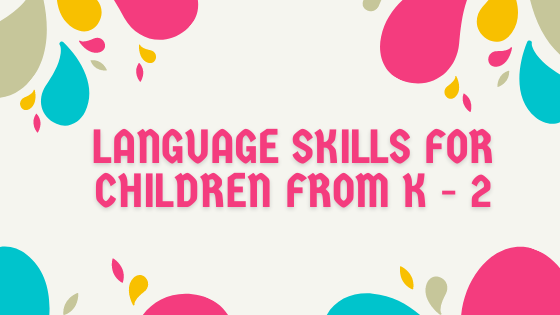
What language skills should a child from age 4-7 know?
Well, this is actually a pretty complex question, and not something that can be answered in one blog post. A child's language development should be looked at through a holistic lens : taking into account how the child interacts with others, how sentences are being put together, how easily they can communicate their wants and needs, and how comfortably they are interacting with peers.
However, there are some aspects of language that tend to emerge, or tend to solidify, around this age, that you can work on emphasizing, in your daily conversation. These include -
Understanding small descriptive sentences, and being able to point at the picture which matches it. For example, "Point to the green dog that is digging in the ground."
Telling which things go together, and why - for example, a dog house goes with a dog, because a dog lives in a doghouse
Telling what objects are used for. For example, shampoo is used for washing hair.
Using quantitative concepts, like big, medium, and small. For example, I like the medium sized dollhouse best - it looks better than that small one, and this big one.
Understanding and using prepositions - like under, above, on top, in between, etc. For example - can you pass me the marker in between the two chairs?
Vocabulary - like names of jobs, body parts, clothing items - "Oh, that's a construction worker. He helps build our roads."
Using simple, grammatically correct sentences- including -ing sentences (They are walking to the park), simple present tense (Elmo loves me!), grammatically correct sentences with am, are, and is (I am hungry, you are hungry, he is hungry) and simple past tense (we colored the picture)
Using pronouns which match either - "He loves his cookies, she loves her cookies, they love their cookies"
Sorting toys or objects into simple categories - school supplies, vehicles, letters, farm animals, etc.
Describing things with adjectives, and the five senses - "this is round, and it tastes sour, and it's orange!"
Using /s/ for grammar - plural /s/ (two cats), possessive /s/ (mommy's car), and /s/ for is (That's fun)
Again, just incorporating more of these targets - maybe one target a week - into daily language is a great boost for speech / language, which is a great boost for overall learning.
Or, if you're a worksheet / book person, here's a fun story / game worksheet bundle, if you want to target some of these K-2 speech and language skills at home!
And finally, if you have questions about your child's speech and language development, or if you want help with particular areas, reaching out to an SLP in your neighborhood is a good investment. Speech / language development is the foundation for language development - and acting early is often better than waiting
Happy Talking!
Disclaimer : Smarter Speech is a pediatric speech therapy / speech-language pathology practice for toddlers and children providing in-home and teletherapy services in and around Mountain View, CA and Los Gatos, CA. Smarter Speech Blog aims to provide free speech and language tips for parents educators and therapists. However, this post is not providing speech-language pathology services. This is general information, not speech -language pathology or speech therapy. This article does not assume or create a client – SLP relationship. The author is not liable for any losses or damages due to actions or failure to act based on the content in this article. If you need assistance with a child’s speech or language needs, please contact a speech-language pathologist in your area.
.png)
コメント